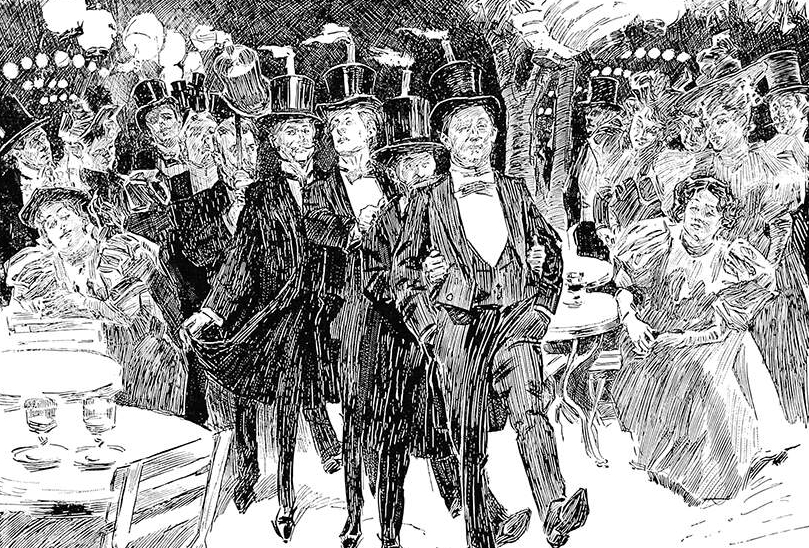Does Your Bank Owe You A Quincecare Duty?
Must a bank investigate a customer's order, if it suspects an order to be an attempt to misappropriate funds?
Banks are commonly asked to carry out transactions on a customer’s behalf.
But must a bank investigate a customer’s order, if it suspects fraud or an attempt to misappropriate funds?
Let’s look at the Quincecare duty in banking transactions.

What a ‘Quincecare duty’ is
Banks hold money for customers. So when drawing/paying on customer’s cheques, the relationship of the bank and the customer is that of principal and agent.
This relationship sometimes even gives rise to a fiduciary duty.
There is thus in law a principle called the ‘Quincecare duty’, so that banks not be used unwittingly (or wittingly) as vehicles for fraud.
What is this duty? This idea is derived from the English case of Barclays Bank plc v Quincecare [1992] 4 All ER 363. Simply put, a banker must refrain from executing an order if the banker ‘has reasonable grounds’ (not necessarily proof) that a customer’s order is an attempt to misappropriate the funds of the company.
That reservation is the duty - which can be an implied term of contract, but can also exist in tort.
There are many permutations as to when the Quincecare duty applies in a banker-customer relationship. But does your bank owe you ‘a Quincecare duty’ in potentially fraudulent transactions?
A recent reported High Court case dealt with this issue: Alliance Bank Malaysia Bhd v. Khee San Food Industries Sdn Bhd & Anor.
Assessment of the Case
-
The bank was Alliance Bank Malaysia Bhd (“Bank”).
-
The bank granted facilities to the 1st Defendant, Khee San Food Industries Sdn Bhd (“KSF”). This consisted, amongst others, bankers’ acceptance (“BA”) of RM10 million.
-
The 2nd Defendant (a public listed company) was the guarantor.
-
The subject matter of the claim involved 21 BAs. Only 3 BAs were specifically disputed.
-
The Bank filed a suit against KSF and its guarantor for default in payment. The claim was for RM4,277,000.00.
-
The Defendants disputed the claim. They filed a joint defence and counterclaim. They pleaded, amongst others, that:
-
The Bank negligently allowed the drawdown of RM892,000 based on forged/fictitious documents.
-
The Bank owed a duty in both contract and in tort, by virtue of the banker-customer relationship.
-
The Bank should have refrained from allowing the drawdown of the BA if the Bank had reasonable grounds for believing there was an attempt to misappropriate funds.
-
The Bank had a duty of care to make reasonable inquiries to satisfy itself that a transaction was bona fide, if circumstances suggested a breach of trust or fraudulent scheme.
-
-
Thus the Court had to decide this issue: did the Bank owe the Defendants a Quincecare duty?
Not applicable to the above case
The High Court ultimately found that the Quincecare duty did not apply in this case. Some interesting reasons were given, i.e.:
-
A bank has no duty to inquire into transactions between its customer and third parties. Especially transactions which the bank is not privy to.
-
A tortious duty cannot be greater than parties’ obligations in a contract. Thus a Quincecare duty, though implied in the contract between the bank and its customer, this must be subordinate to other contractual duties of the bank.
-
The Bank’s duty is imposed byshowing actual knowledge, not constructive knowledge. (Constructive knowledge means you are legally presumed to know a fact.)
When Quincecare liability is clear
When is a bank clearly liable under the the Quincecare duty? Particularly where:
…“(the) bank executes the order knowing to be dishonestly given, shutting its eyes to the obvious fact of the dishonestly or acting recklessly in failing to make such inquiries as an honest and reasonable man would make”.
So clear circumstances would, for instance, include where cheques for payment are issued without a signature. Or where cheques contain a signature of someone other than the authorized signatory, or where the bank receives conflicting instructions.
In these exceptional circumstances, the bank will be liable. It needs to be proactive to prevent misappropriation of a customer’s fund.
But beyond that, it seems to impose such a duty on a bank is simply be too onerous. It also renders banking business impracticable.
The ‘Quincecare duty’ arises only in some circumstances
There are some other interesting limitations to the Quincecare duty. Reading from the case:
-
For instance, the Quincecare duty does not apply to all banker-customer relationships. It applies where the bank acts on instructions of the customer in respect of the customer’s own bank account, i.e. money moving out of that account.
In this context, the Bank is the agent of the customer. So it owes a fiduciary duty to its customer. The Bank, because it is a ‘custodian’ needs to be extra careful. The customer stands to lose more than the bank.
-
In contrast, and in the above case, the BA transactions were monies borrowed from the Bank. They were not monies from the customer’s own bank account. The Bank bears the greater risk, and stands to lose more than the Defendants.
So a bank does not owe you a Quincecare duty for monies borrowed from the bank.
-
The Bank had no duty to inquire into commercial documents if the bank was not a party to an agreement. The Bank was entitled to presume that agreement’s validity.
-
The Bank was entitled to treat the customer’s mandate at face value, outside of extreme circumstances. So a bank should not act as an amateur detective, nor should it question transactions, unless it has grounds to believe that the transactions were meant to defraud the principal.
-
It was irrelevant whether the Bank was put on notice or not, since the Quincecare duty did not apply.
Conclusion
Based on the above High Court case, your bank owes you a Quincecare duty only if:
-
The duty can be implied from your contract. E.g. where there is an implied term of the contract (between the bank and the customer) that the bank will observe reasonable skill and care in executing customer’s orders.
-
It involves your monies. E.g. where transactions involve monies from your own account, not monies borrowed from the bank.
-
The bank acted despite suspicions of fraud. E.g. where the went ahead with a transaction despite knowing or having suspected (on the face value of the commercial documents provided to the bank) that there was a likelihood of fraud.
Note: This High Court decision is amongst the 16 High Court decisions which are up on appeal (all on the same Quincecare issue: whether the Banks were negligent/breached their duty of care, in that, the Banks were required to check the veracity of the documents prior to effecting the drawdowns). These 16 appeals will be heard together in the Court of Appeal in December 2021.

